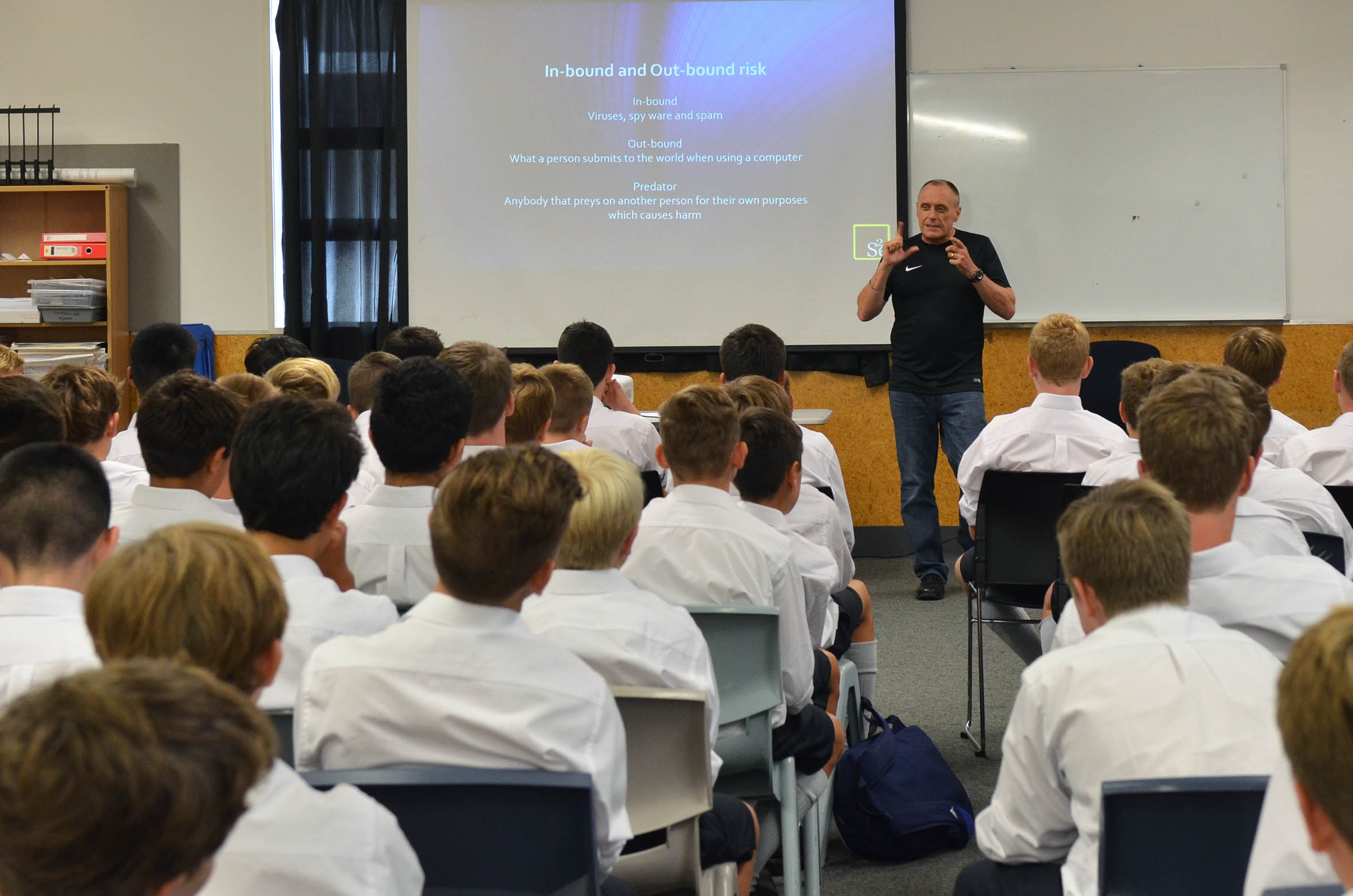Chin up, shoulders back
03 Feb 2018
Technology and the Internet now play a huge part in all our lives, yet how many of us really understand and can move with confidence through cyberspace?
On Wednesday 31 January, cyber safety educator John Parsons visited College to talk to Year 9 students about staying safe in the digital world. In a compelling and interactive session, using real life examples and offering plenty of practical tips, John outlined online risks – both technological and social – and how to manage them. “The Internet is a location you go to and move through. It’s a place and, to be safe online, you must learn how to navigate it. There’s only one of you on the planet. You own your identity and you control how it’s used.”
John said the boys first had to learn to value themselves and other people in order to be safe online. “Understand how valuable you are, and nurture and protect your identity. Chin up, shoulders back, be confident and broadcast with power and control your values and who you are as young men … and remember, compassion, kindness and empathy are the truest form of strength.”
He talked about how people build online identities and stressed the importance of community, of staying connected in positive ways and being able to reach out for help if things go wrong.
His key messages include:
- do not accept strangers as friends
- do not share personal information with strangers – for instance, if in a multi-user forum
- do not send or share personal or explicit images or messages (even with a friend)
- do not ignore your gut feeling – if something does not feel right, it is not right
- do not retaliate or respond, or up the ante in such a way as to inflame an online conflict
- if concerned, disconnect from a difficult situation, gather evidence if you can, and talk to a trusted adult
He asked the boys to really think about how they behave online and to do what they know is right. In doing so, the Internet and the extraordinary diversity of communication and experience it brings, can become a positive place in which to spend time. “Everyone can make mistakes, but it’s how you respond that’s important. The Internet can work both for you and against you. Make it work for you.”
In 2017, John published Keeping Your Children Safe Online, A Guide for New Zealand Parents, which outlines the ways in which parents can work with and empower their children to protect themselves and set boundaries in the digital world. Further information about John’s work can also be found online at simulate2educate.co.nz.

